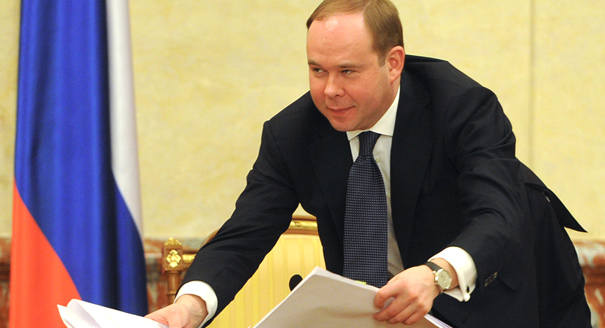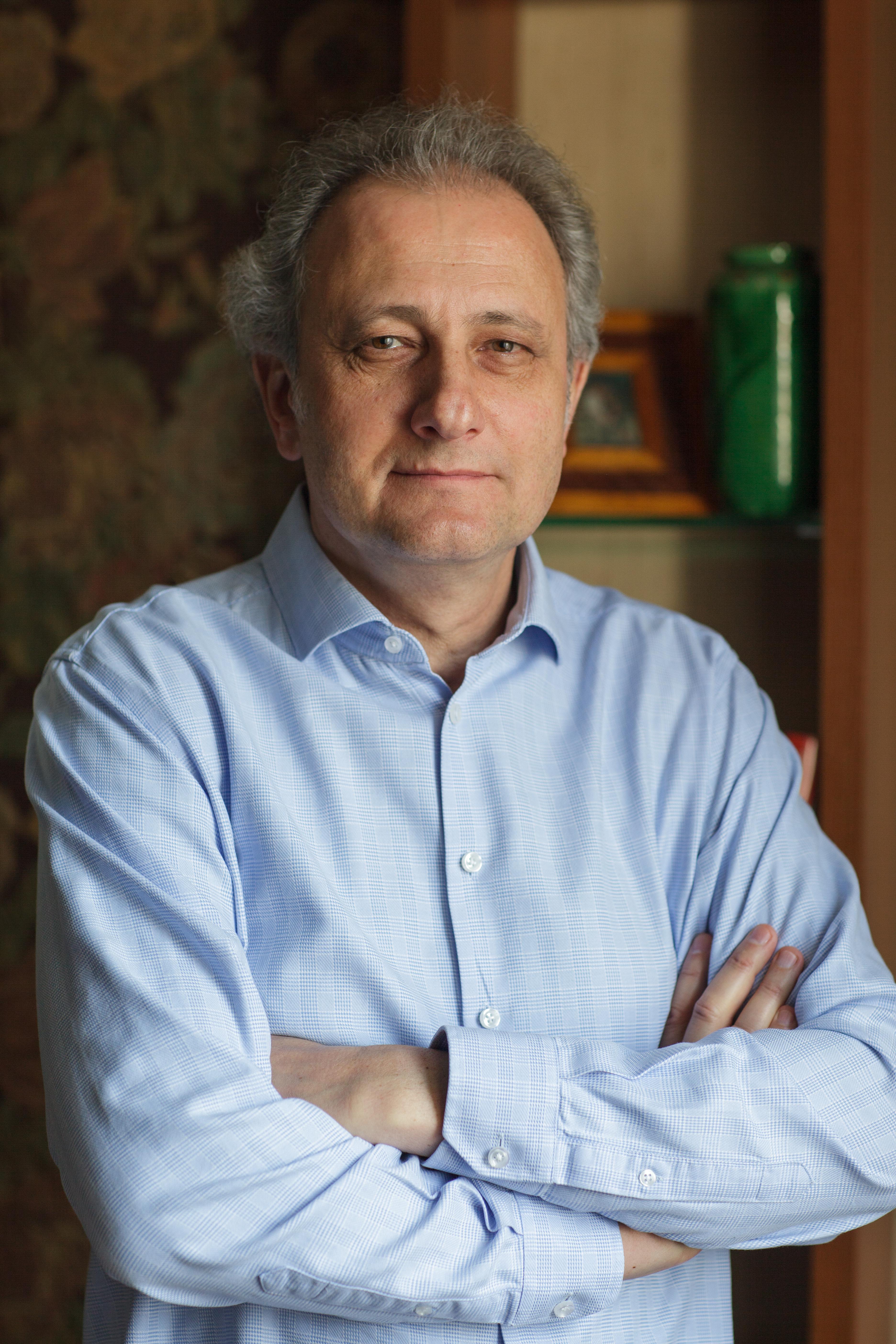Andrei Kolesnikov
{
"authors": [
"Andrei Kolesnikov"
],
"type": "commentary",
"centerAffiliationAll": "",
"centers": [
"Carnegie Endowment for International Peace",
"Carnegie Russia Eurasia Center"
],
"collections": [],
"englishNewsletterAll": "",
"nonEnglishNewsletterAll": "",
"primaryCenter": "Carnegie Endowment for International Peace",
"programAffiliation": "",
"programs": [],
"projects": [],
"regions": [],
"topics": []
}
Source: Getty
Out With the Old, In With the New for Russia’s Political Elite
Putin won’t take all the members of the old guard with him in 2018. They will be replaced by a generation of special service operatives, security guards, and technocrat-apparatchiks in their forties and fifties, who will stand by Putin in 2018 and beyond
The surprise replacement last week of Sergei Ivanov, a longtime ally of Russian President Vladimir Putin, with former head of protocol Anton Vaino as presidential chief of staff sparked a whole host of speculation, most of which can be safely disregarded. But, digging through the unfounded forecasts, one can find a clear message.
A comparison of Vaino’s credentials to those of Prime Minister Dmitry Medvedev suggests that he may very well become the new prime minister. Like Vaino, Medvedev previously worked for the central government and was also known as a businesslike and responsible official. Like Vaino, Medvedev was presidential chief of staff and was not considered an independent figure. But the main point is that the regime needs to prepare a new generation of the elite to stand by Putin in 2018, when his current presidential term ends, and beyond. As chief of staff, Vaino will be instrumental in preparing this new wave of politicians.
Putin won’t take all of the members of the old guard with him in 2018, as demonstrated by the recent removals from their posts of former Russian Railways boss Vladimir Yakunin, drug czar Viktor Ivanov, Federal Guards Service head Yevgeny Murov, and customs chief Andrei Belyaninov. The list of retired “friends” will only get longer. They will be replaced by a generation of special service operatives, security guards, and technocrat-apparatchiks in their forties and fifties.
They will be young enough to be approaching old age in 2024—after which Putin is constitutionally barred from running for a third term—yet experienced enough to accompany Putin after 2018. They will be close enough to the boss, as only drivers, bodyguards, and protocol officials can be. Yet they will have enough distance from the boss to offer nothing but praise.
They will have enough savvy to navigate the byzantine intrigue at the Kremlin and the presidential administration, but won’t be real politicians who can rival their overlord—though of course an apparatchik who used his position to become a politician may acquire ambition and a sense of mission. Recent political history already knows one such individual: his name is Vladimir Putin.
The president needs to be confident that the elite will be efficient enough to handle economic depression and possible political upheavals, and loyal enough to ensure that 2024 won’t bring any calamities, either to the country or to Putin himself.
Perhaps the presidential administration will start to look the way it’s supposed to under Vaino: simply the bureaucratic arm of the president, leaving the mantle of political manipulator to First Deputy Chief of Staff Vyacheslav Volodin. But the new young boss is certain to be besieged by political and financial clans that will rush to pay their respects. Even if he simply obeys the president’s orders, Vaino is so close to the president that he is looked upon as his avatar. He automatically becomes as politically powerful as the prime minister, if not more so: Medvedev has already fulfilled the political task assigned to him, while Vaino is still on the rise.
One subject of discussion by analysts on the day of his appointment was Vaino’s Estonian origins, as though this might influence his outlook, though in fact he comes from a Russian-speaking family and his grandfather, Karl Vaino, was a staunch communist who was first secretary of the Estonian Communist Party.
Of far more significance than Vaino’s origins are his education as a graduate of Moscow State Institute of International Relations and his career as a diplomat specializing in Japan. Russia’s current political regime heavily relies on military officers, security service operatives, and diplomats. Aided by their professional background, the new elites are ready to carry out any order issued by any government. And this is why discussions about the liberalization of Russian politics under Vaino are naïve. Liberalization will happen only if the president orders it. If he orders the screws to be tightened to breaking point, that order will be carried out. No secret cabinet to develop or implement reforms exists, nor are reforms possible now in either Russia’s domestic or foreign policy.
Another area of speculation was Vaino’s ideological bias. The new chief of staff is the author and co-author of a number of research publications, including one titled “Capitalization of the Future” and published in the Issues of Economics and Law journal, which starts with the words “The market is an expression of life.” Among an incomprehensible mass of scientific terms, it describes a patented analyzer of events called a “nooscope,” which is supposed to “capitalize the future.”
Vaino’s regular co-authors, Viktor Sarayev and Anton Kobyakov, described the “nooscope” as “a device that receives and registers changes in the biosphere and human activity.”
Kobyakov, who was also Vaino’s thesis supervisor, is a former deputy head of the presidential department of foreign policy and currently a foreign policy advisor to the president.
On the day Sergei Ivanov resigned, Russian Railways paid its former head Yakunin a three-year bonus in a somewhat symbolic coincidence: the system takes care of those who leave on even relatively good terms.
Not everyone in the old guard manages to leave on good terms, although the president does everything he can to clearly formulate the rules of the game via numerous signals. His associates are wealthy, which is only natural in a system where power is equated with property, property is converted into power, and those in positions of power monetize their positions. But at a time of economic crisis, upcoming parliamentary elections, and the president’s looming last term, the upper echelons of the elite need to be more humble and cautious. They need to take note of public opinion, which is largely synonymous with the opinion of the country’s leader.
After all, there are always replacements waiting in the wings. Vaino’s career trajectory and personal characteristics illustrate how the replacements can be made and what the new appointees may look like, while another possibility is the former security service personnel that have recently been appointed governors. The rotation of the elite is not over. This is just the beginning.
Correction: An earlier version of this piece incorrectly stated that Anton Kobyakov was one of the authors of Cold War 2.0. The Strategy of Russian Victory.
About the Author

Former Senior Fellow, Carnegie Russia Eurasia Center
Kolesnikov was a senior fellow at the Carnegie Russia Eurasia Center.
- How the Putin Regime Subverted the Soviet LegacyCommentary
- Putin’s New Social JusticeCommentary
Andrei Kolesnikov
Recent Work
Carnegie does not take institutional positions on public policy issues; the views represented herein are those of the author(s) and do not necessarily reflect the views of Carnegie, its staff, or its trustees.